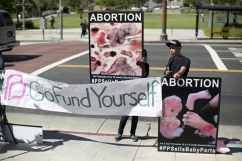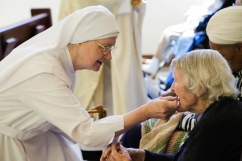
Membership in Christian healthcare sharing ministries in the U.S. has increased as people try to look for alternatives to the Affordable Care Act, or Obamacare, of the Obama administration.
One beneficiary is the youngest child of James Lansberry, vice president of the Christian healthcare sharing group Samaritan Ministries.
The child almost didn't survive his birth as he spent 11 days in a neo-natal intensive care unit, which cost over $200,000.
Yet "every single dollar of those bills was paid and it was paid through gifts and notes and cards and bearing the burden from hundreds of different families across the country – people who I'll never meet on earth, who took the time to not only bear the financial burden of my family, but I have cards and notes from 43 different states," said Lansberry, according to the Catholic News Agency.
Instead of enrolling in private insurance or public health exchanges, member families of healthcare sharing ministries pay a monthly premium that covers each other's healthcare costs. They can also volunteer to pay even more for others' needs.
Each Samaritan member has a limit of $250,000 in sharable amount, but even when costs exceed the amount, other members can volunteer to pay the additional costs.
"Healthcare sharing is specifically, as we practice it at Samaritan Ministries, is a lot like moving a piano," Lansberry said
Healthcare sharing ministries are allowed under Obamacare provided that the ministries existed before 2000.
The number of members in the three largest health-sharing ministries – Samaritan Ministries International, Christian Care Ministry or "Medi-Share," and Christian Healthcare Ministries – has increased from 190,000 in 2013 to more than 311,000 in 2014, according to the Charlotte Lozier Institute.
Last year, the three ministries had $253 million in healthcare costs.
Scott Daniels, author of the report on ministries, says the popularity of healthcare sharing ministries can be attributed in part to the desire of families to pay only for insurance coverage they need while others also sought alternatives because of the abortion and contraception mandates under Obamacare.
A government watchdog report in 2014 discovered that in federally subsidised health plans on public exchanges, insurers were not billing abortion coverage separately, leaving a possibility that federal dollars were used for elective abortions.
"We need to go back to what we were as an early Christian community," says Louis Brown, director of CMF CURO, a Catholic healthcare sharing ministry that has partnered with Samaritan Ministries, meaning "accompanying each other in all aspects of our life" and ensuring that the Lord is "Lord over everything" including healthcare.
























